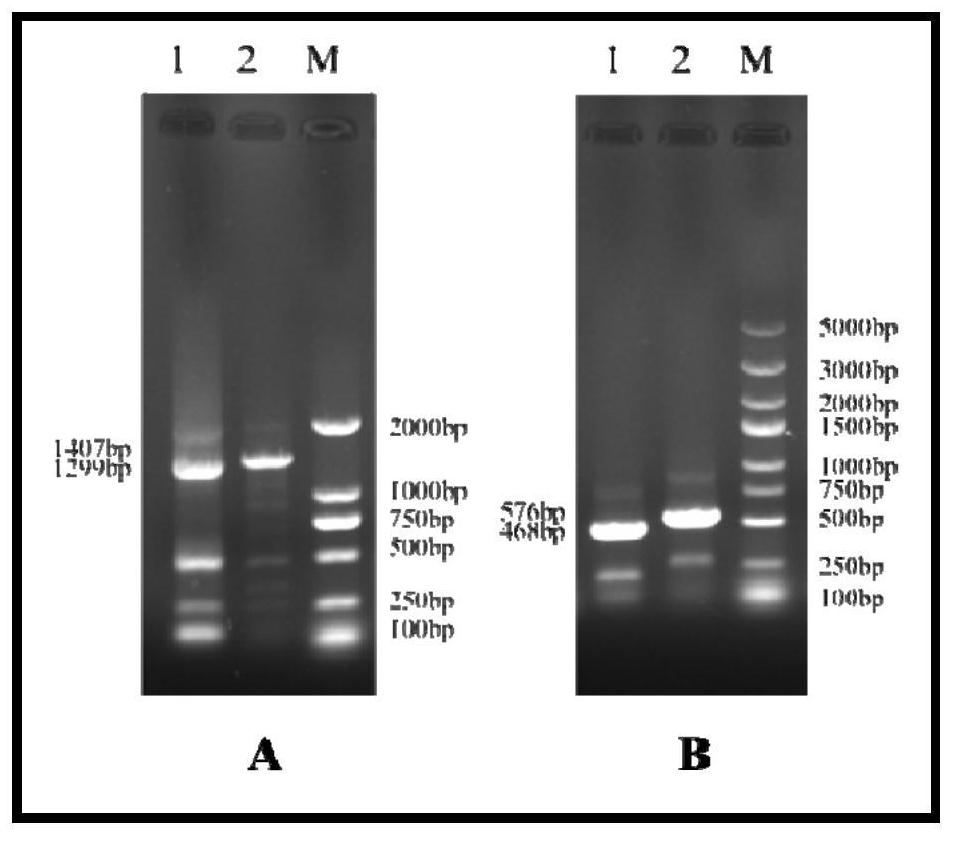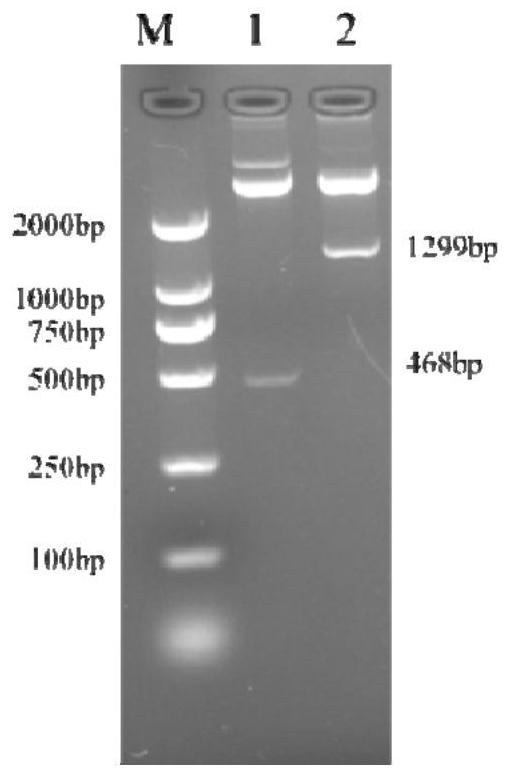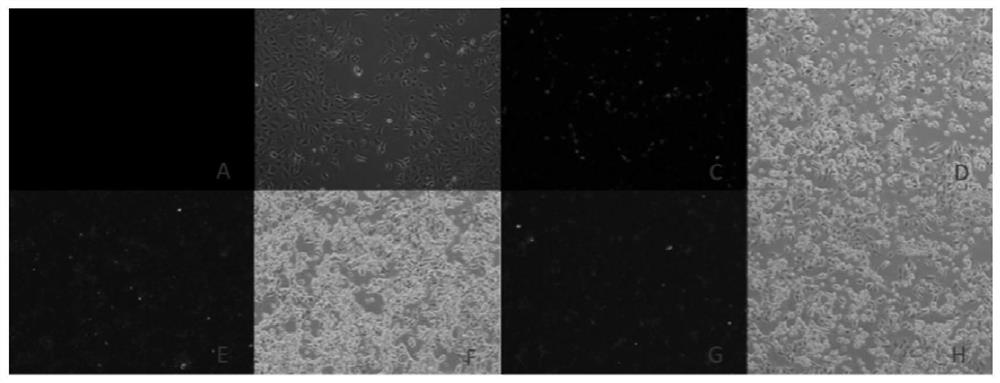Construction method and application of recombinant adenovirus with triple epitope gene of cow mastitis pathogenic bacteria and c-type lysozyme gene of grouper
A technology for cow mastitis and recombinant adenovirus, applied in the direction of viruses, applications, glycosylases, etc., can solve problems such as drug residues and bacterial drug resistance
- Summary
- Abstract
- Description
- Claims
- Application Information
AI Technical Summary
Problems solved by technology
Method used
Image
Examples
Embodiment Construction
[0027] Below in conjunction with accompanying drawing and specific embodiment the present invention is described in further detail:
[0028]Cow mastitis is mainly caused by the cross-infection or co-infection of three pathogenic bacteria, Staphylococcus aureus, Escherichia coli and Streptococcus. At this stage, antibiotics are mainly used as prevention and treatment methods . The frequent use of antibiotics can easily lead to problems such as bacterial resistance and drug residues, and it is not a long-term treatment method that can be relied on. Epitope vaccines have the advantages of good safety, strong protection, and adjustable response types. They can activate specific immune cells in the body to respond by continuously expressing antigenic substance epitope polypeptides in cells. In the experiment, three specific proteins of the main pathogenic bacteria of dairy cow mastitis were selected, namely, Ebps and ClfA of Staphylococcus aureus, OmpA and OmpC of Escherichia coli...
PUM
 Login to View More
Login to View More Abstract
Description
Claims
Application Information
 Login to View More
Login to View More - R&D
- Intellectual Property
- Life Sciences
- Materials
- Tech Scout
- Unparalleled Data Quality
- Higher Quality Content
- 60% Fewer Hallucinations
Browse by: Latest US Patents, China's latest patents, Technical Efficacy Thesaurus, Application Domain, Technology Topic, Popular Technical Reports.
© 2025 PatSnap. All rights reserved.Legal|Privacy policy|Modern Slavery Act Transparency Statement|Sitemap|About US| Contact US: help@patsnap.com



